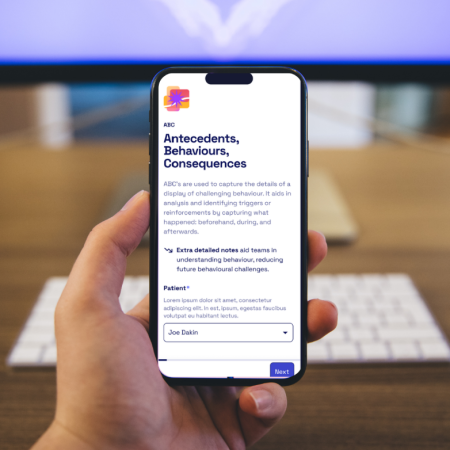Staff at Liverpool University Hospitals are trialling a platform that aims to better support the care of patients with dementia by tracking their behaviour patterns.
Over 900,000 people are estimated to be living with dementia in the UK, a condition affecting cognitive brain functions, such as memory and thinking. Dementia also causes a person’s behaviours to change, which can make them feel restless and uncertain.
The dementia team at LUHFT has been working to better understand triggers that may cause a patient with dementia to behave differently, so that they can further support their care needs.
Supported by Liverpool University Hospitals NHS Charitable Fund, which is dedicated to improving patient care, LUHFT has partnered with Decently, a company based in the North West of England, to develop an online platform called Melo.
Melo uses information, which clinical staff enter into the system, to identify behavioural triggers in patients with neurological illnesses such as dementia. This will enrich the information clinical teams have on a patient’s personality to make effective clinical decisions whilst they are in hospital.
Over a 12-month trial period starting later this year, staff on wards 20 and 34 at Aintree University Hospital will complete a digital behavioural assessment on the app, which can be shared with a patient’s clinical team. This information will determine the ways to help an individual be settled on a ward, advise on how to de-escalate challenging behaviours and ways to stop them occurring all together.

Melo uses data-gathering technology to detect patterns in behaviour, which provide a holistic overview of a patient’s condition, making it easier for clinical staff to handover to community care when a patient is ready to be discharged from hospital.
David Melia, Chief Nursing Officer at LUHFT said: “Finding new and innovative ways for us to provide the highest quality care is something we are passionate about at LUHFT.
“By providing colleagues with intuitive technology to record behavioural information about a patient living with dementia, we hope this trial will continue to support how we are improving the delivery of care for this vulnerable group of patients.”
The Decently team has worked closely with clinical and innovation staff at LUHFT to adapt the Melo app, giving it personalised features for its use on the wards.
Sessions have included focus groups with staff from different areas of care delivery to discuss ways the app could benefit both patients and staff.
As part of the project, the Innovation team at LUHFT has engaged with the Information Governance team to ensure the app is a secure platform to store patient records, compliant with the UK General Data Protection.
Ged Jennings, Acute Liaison Nurse and Behaviours of Concern project lead at LUHFT, has worked closely with both the Decently team and LUHFT colleagues on developing the Melo app.
Ged said: “We are excited to implement the Melo app on our dementia wards to help us continue to provide the best and most appropriate care to our patients.
“Working with the team at Decently, we have been able to shape the app so it will improve the experience of both patients and staff.”
The initial project is set to launch at the end of 2024, and the team will continue to monitor the benefit of this technology.
James Chapman, Co-Founder of Decently, said: "We're thrilled to work with LUHFT on this important initiative.
“Our Melo platform has the potential to revolutionise behavioural assessments and patient understanding in dementia care, and we're committed to developing a solution that addresses the specific needs of both patients and healthcare professionals."
Dr Andrew Rose, Assistant Director of Innovation at LUHFT, said: “Thank you to the LUHFT Charity for very generously supporting our initial work with Melo.
“We hope that our trial of this platform will demonstrate that the innovative app can support our staff in improving the care and safety of patients with dementia.”
To get involved with Innovation at LUHFT, click here.
